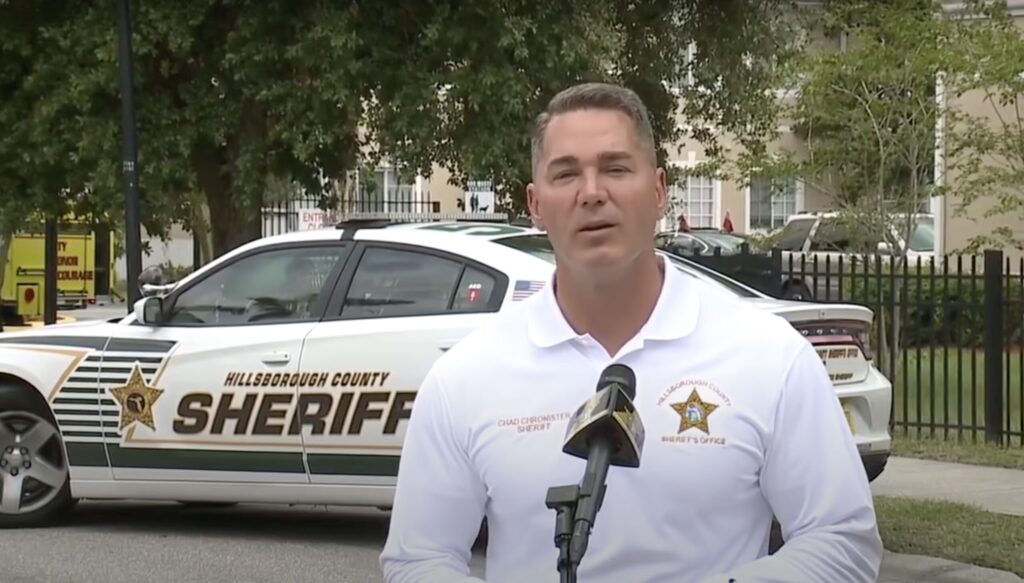The recent decision by Hillsborough County Sheriff Chad Chronister to withdraw his nomination for the position of DEA Administrator has ignited a political firestorm, particularly in the context of President Donald Trump’s response to the criticisms surrounding the selection. Trump has made it unequivocally clear that it was his decision to pull Chronister from consideration, disputing the sheriff’s claims of a voluntary resignation. This revelation underscores the contentious atmosphere among Trump’s base, particularly given Chronister’s controversial record that has led to accusations of inconsistency with conservative values. Critics, including his own supporters, labeled him a “flip-flopping opportunist,” pointing out his party switch from Democrat to Republican as a significant red flag for his nomination.
Chronister’s history in law enforcement has been under scrutiny, particularly for actions that have not aligned with the expectations of Trump’s grassroots supporters. His orders during the COVID-19 pandemic, particularly the high-profile arrest of Pastor Dr. Rodney Howard-Browne for holding church services in violation of lockdown measures, drew ire from many evangelicals and civil libertarians. Furthermore, the release of criminal offenders during the pandemic, including a repeat offender who later committed murder, raised questions about his commitment to public safety. The perception of weakness in responding to civil unrest, particularly during Black Lives Matter protests, and his vocal support for red flag gun confiscation policies further alienated segments of Trump’s base, who view such measures as incompatible with Second Amendment rights.
His withdrawal announcement, framed by Chronister as a decision made to focus on his current responsibilities, was swiftly met with skepticism. In his statement, he expressed gratitude for the nomination while stressing the importance of his ongoing work as Sheriff. However, this narrative quickly faced backlash from Trump supporters who considered it an inadequate defense against a growing chorus of criticism. Many right-leaning commentators and social media users immediately began to question the appropriateness of his nomination, arguing that it revealed a disconnect between Trump’s administration and its base.
Media coverage of the development has also reflected the political tensions surrounding Chronister’s withdrawal. Outlets like The Wall Street Journal framed the situation as a setback for Trump, suggesting a decline in influence even following his recent presidential victory. Yet, Trump vehemently rejected this narrative, taking to social media to dismantle it and reiterate his authority in the decision-making process regarding Chronister’s candidacy. He took issue with the media’s portrayal, stating that the focus should shift to more pressing global issues rather than a single nomination setback, which he deemed trivial.
Trump’s response highlighted a significant aspect of the contemporary political landscape: the ongoing battle between traditional media narratives and the president’s direct engagement with his base through social platforms. By denouncing the media’s framing of the situation, Trump seeks to reinforce his position as a leader who prioritizes the concerns and opinions of his supporters above external judgment. His criticism of news outlets for their coverage of events occurring during his presidency also speaks to a broader theme of distrust in mainstream media, an issue that resonates deeply with his base.
The controversy over Chad Chronister’s nomination and subsequent withdrawal illustrates the tumultuous synergy between presidential decision-making, grassroots politics, and media narratives in the evolving landscape of American governance. It reflects the ongoing struggle within the Republican Party to reconcile different factions—establishment figures versus grassroots activists—and poses critical questions about the selection of individuals for key positions in the administration who may not align entirely with the prevailing conservative ideology. As this episode unfolds, it will likely have implications for future nominations and the dynamics between Trump and his supporters as they navigate the complexities of governance and partisan politics.

